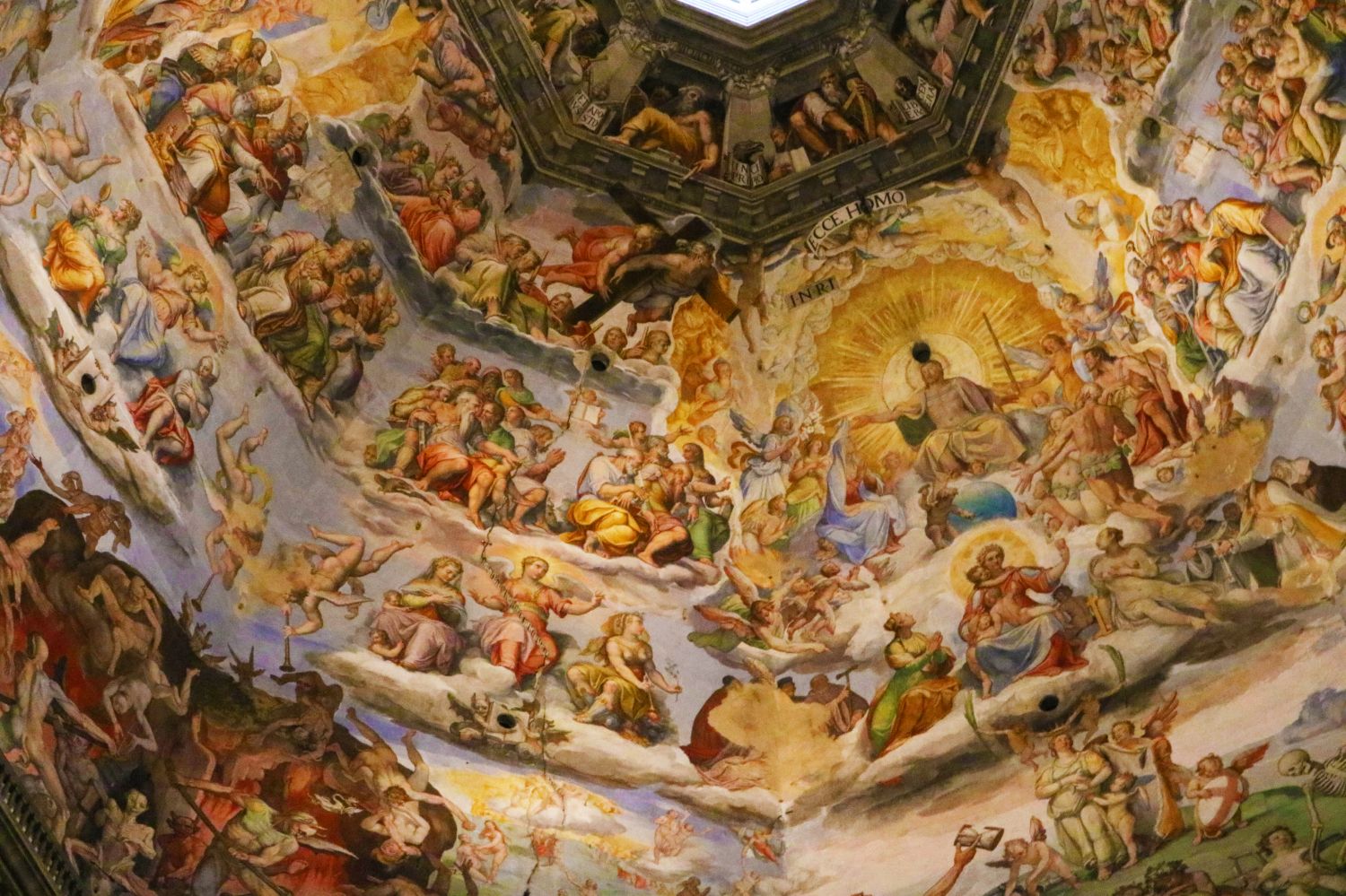







The important artistic heritage in the Uffizi is because of the legacy that the family of Medici created for the city of Florence. This important Florentine dynasty gave freely all the works of art of great value to the city, with the rule that they cannot be sold or leave town for any reason.
With the time, the artistic heritage in the Uffizi museum was increasing, thanks to bequests donated to the city. Some of the masterpieces of the Uffizi presented today also came from other structures and museums, which over time were abandoned or became less suited to keep important works of art.
Here it is hosted the Venus and the Spring by Sandro Botticelli, the Bacchus and the Medusa by Caravaggio, the Announciation by Leonardo Da Vinci, may paintings by Raphael, The Venus of Urbino by Titian and many other artworks.
Vasari, commissioned by Cosimo I de Medici, built the museum with a shape of "U”, so this museum of Florence is unique and differs unambiguously from other museums.
The success of Uffizi around the world is even more significant considering that it was not born as a museum, but as a building to house offices of the various courts. It had to be an extension of the Palazzo Vecchio and that has always been the seat of government in Florence.
In the era of the construction of these "offices" this area was particularly strategic for the management of the interests of the city. So they build the "offices" between Palazzo Vecchio and the side of the Arno River near the port of Florence. The river port at that time was in fact, the commercial customs of most goods arriving or departing from Florence.
The opera building was fully commissioned to Vasari, the great Florentine artist who managed to create a great aesthetic beauty although it there were large savings policy to contain costs.
This careful approach was established by Cosimo I de Medici by virtue of the fact that these "offices" were to be secondary administrative places, as opposed to the Palazzo Vecchio, which was the main seat of government. There they have spent huge sums in frescoes and various interior decorations.
They started more work that is decorative. The first works were entrusted to Buontalenti, to make the Uffizi a structure worthy of guarding the important art pieces owned by the Medici family, that predisposed the frescos of the time in the gallery.
With the transformation of the Uffizi, it was born as the first and oldest museum in Europe, not being freely open to the public, but still visited upon request. The Medici dynasty continued commission additional works and expand the structure of Uffizi.
Here our article about the Uffizi Museum Gallery
Available days: Everyday from Tuesday to Sunday
Bookable Starting Time: From 8:15 am to 3:30 pm
Duration: 3 hours
Available Languages:
All, on reservation
Adult rate: The rate of the tour depends on the number of people. CALCULATE YOUR OWN RATE!
Child rate: Children from 6 years to 17 years with ID. Please insert number of people
Meeting Point: Piazza della Signoria, Neptune’s Fountain
The rate includes: Local expert authorized guide
ticket with skip-the-line